
Mobile money makes it easy to send and receive money. Learn about mobile money, what it is, and how it works.
Mobile money has transformed the way we handle cash and financial transactions. It's a fast, convenient, and secure method to manage money using just a mobile phone.
Mobile money has experienced rapid growth, especially in developing countries. According to GSMA's State of the Industry Report on Mobile Money, there were over 1.35 billion registered mobile money accounts worldwide in 2021.
Unlike banking apps that can only be accessed over the internet with smartphones, mobile money services can be easily accessed through feature phones without the need for the internet. What this means is that those who don’t have enough money to purchase a smartphone or pay for an internet connection can access financial services.
In this article, we'll discuss what mobile money is, how it works, and discover how connecting with mobile money makes it possible for payments to be made within Africa.
What is Mobile Money?
Mobile money is a digital financial service allowing users to send, receive, and store money using mobile phones. It provides an alternative to traditional banking methods, enabling people to access financial services without needing a bank account or visiting a physical bank branch.
Mobile money was particularly shown to be useful in developing countries where many people don't have access to traditional banking services.
Advantages of Mobile Money
Aside from being a helpful means of providing people with access to banking services, mobile money comes with the following advantages:
Convenience: Mobile money allows you to manage your finances from the comfort of your own home or on the go. This means you don't have to visit a bank or ATM to access your funds.
Accessibility: Mobile money has expanded financial services to people who may not have access to traditional banking. This includes individuals in remote areas or those without a bank account.
Safety: Mobile money transactions are secured through encryption, making it safer than carrying large amounts of cash. Additionally, mobile money service providers have implemented various security measures to protect users from fraud and theft.
Speed: Mobile money transactions are usually processed within seconds, making it faster than traditional bank transfers.
Lower Costs: Mobile money services often have lower fees than traditional banking services, particularly for small transactions or remittances.
How Does Mobile Money Work?
To use mobile money, you first need to create an account with a mobile money service provider. This account is linked to your mobile phone number and can be managed using a simple app or through text messages or Unstructured Supplementary Service Data (USSD).
Once your account is set up, you can deposit money into it by visiting a mobile money agent or using a linked bank account. You can then use your mobile money balance to pay bills, purchase goods and services, or send money to friends and family.
If you want to withdraw cash from your mobile money, you have to use the services of a mobile money agent. The mobile money agent provides you with the physical cash equivalent of your digital balance.
Send money to mobile money wallets with Bitnob
According to the World Bank, Sub-Saharan Africa has been a major driver of mobile money adoption. As of December 2020, Africa had 548 million registered mobile money accounts and processed $490 billion in transactions.
It’s understandable why Africa embraced mobile money services. As mentioned earlier, for people in developing countries access to traditional banking services is a challenge. This has led to a lot of people being unbanked.
However mobile money has contributed to financial inclusion. A World Bank report showed that between 2011 and 2017, the number of unbanked individuals dropped from 2.5 billion to 1.7 billion, largely due to the availability of mobile money services.
With the Bitnob app, you can send money within Africa directly to the mobile money wallet of the recipient. What this means is that even if the recipient doesn’t have access to the internet or even a smartphone, they can still receive the money you sent them using the Bitnob app.
This can be done using Bitnob’s transfer feature. With the transfer feature, all you need to do is to input the mobile money details of the recipient and they get to receive the money you sent them in their mobile money wallet.
How to use Bitnob to transfer money to the recipient’s mobile money wallet
You can send money with Bitnob to 8 African countries. Aside from Nigeria, which accepts direct bank transfers, you can send money to the mobile money wallets of 7 African countries. These countries are Ghana, Kenya, Senegal, Togo, Ivory Coast, and Benin Republic.
To make a direct transfer into someone’s bank account or mobile money wallet, you are required to download the Bitnob app. You need to verify your account and fund your USD wallet, and you can then follow these easy steps to make transfers between the supported African countries:
- Tap on the “Transfer” button on the Quick links section of the homepage
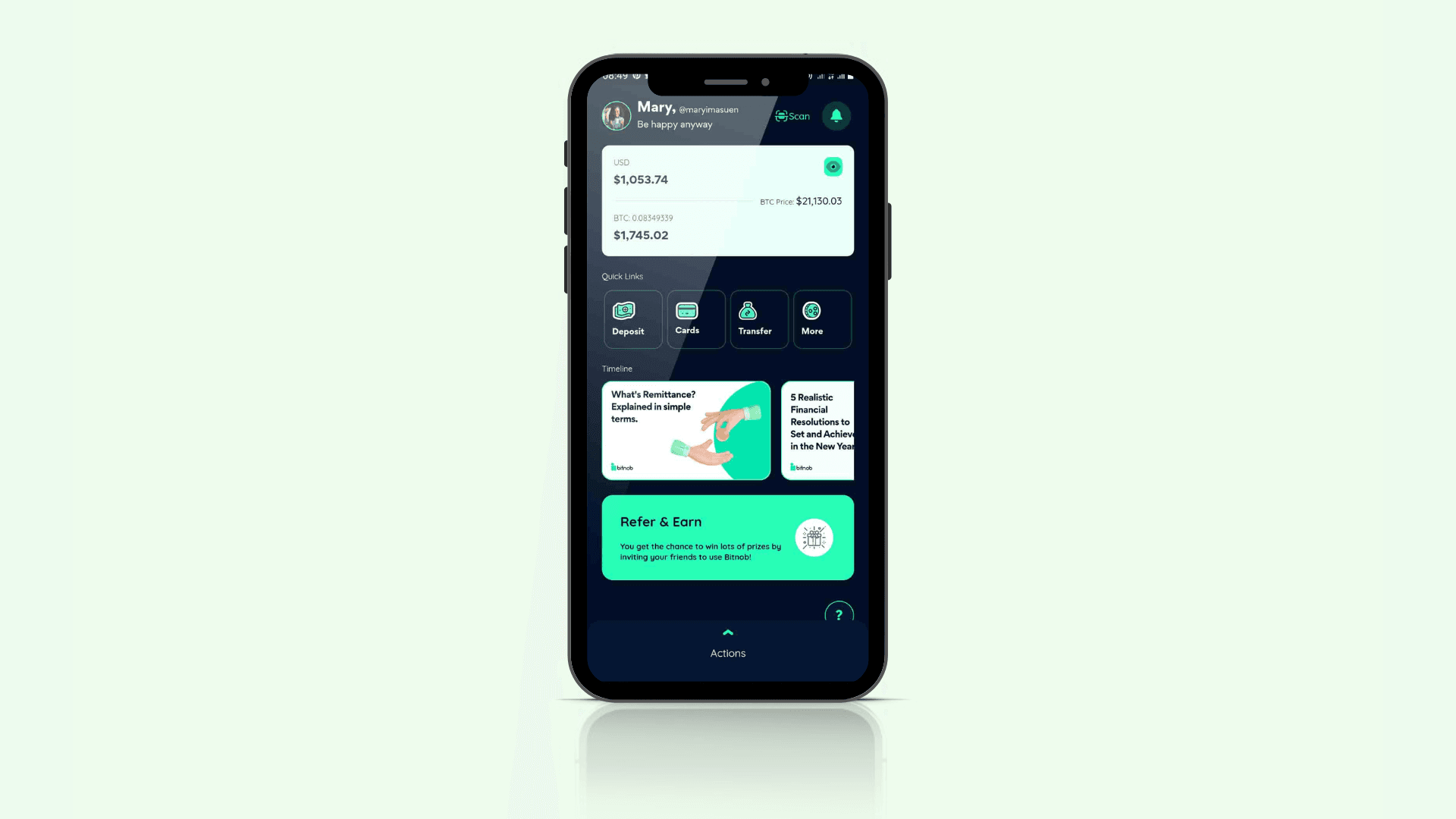
- Tap on “Transfer to Bank or Momo”
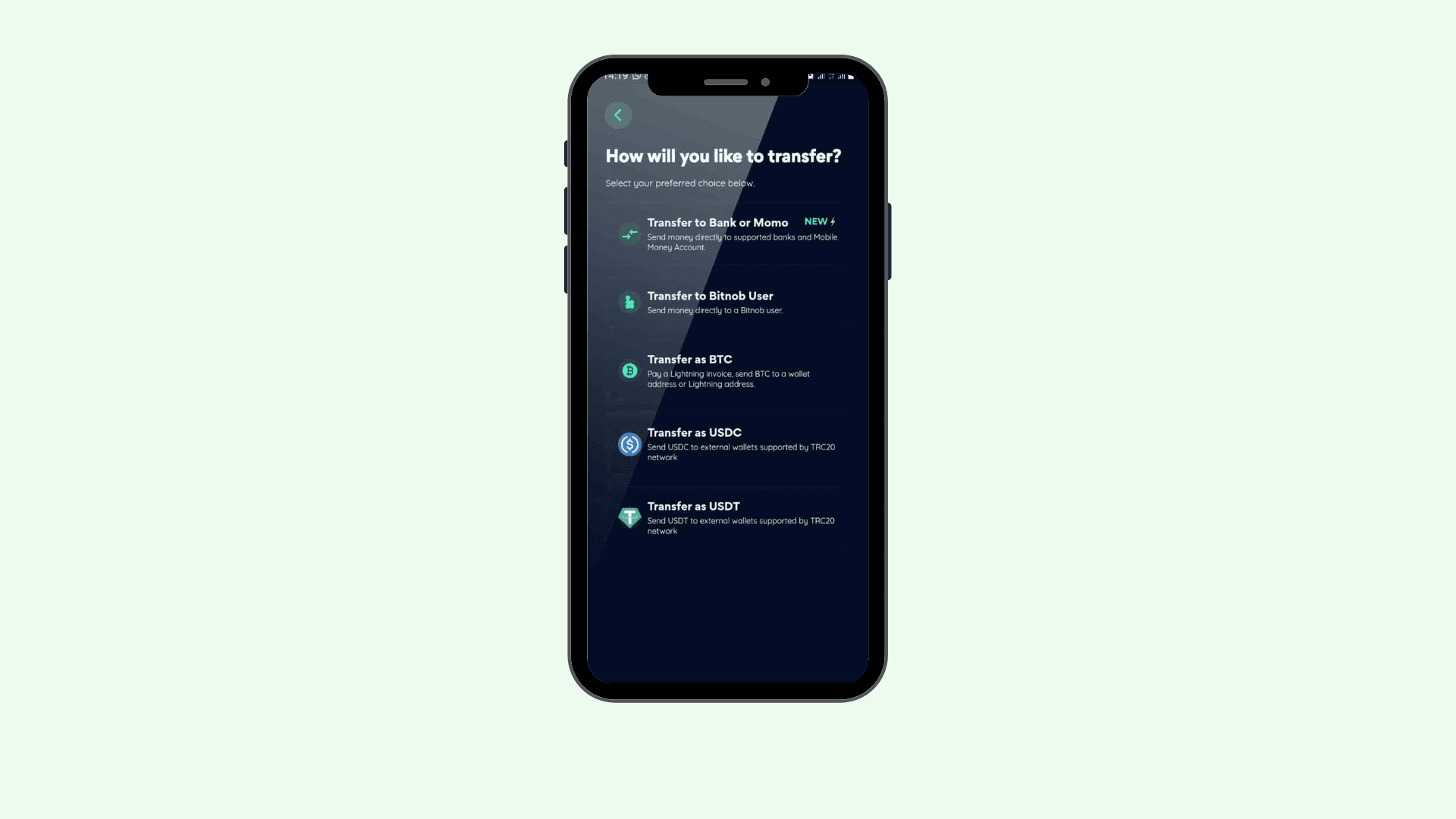
- Tap on “Change currency” to select the country of the mobile money wallet you want to transfer money to
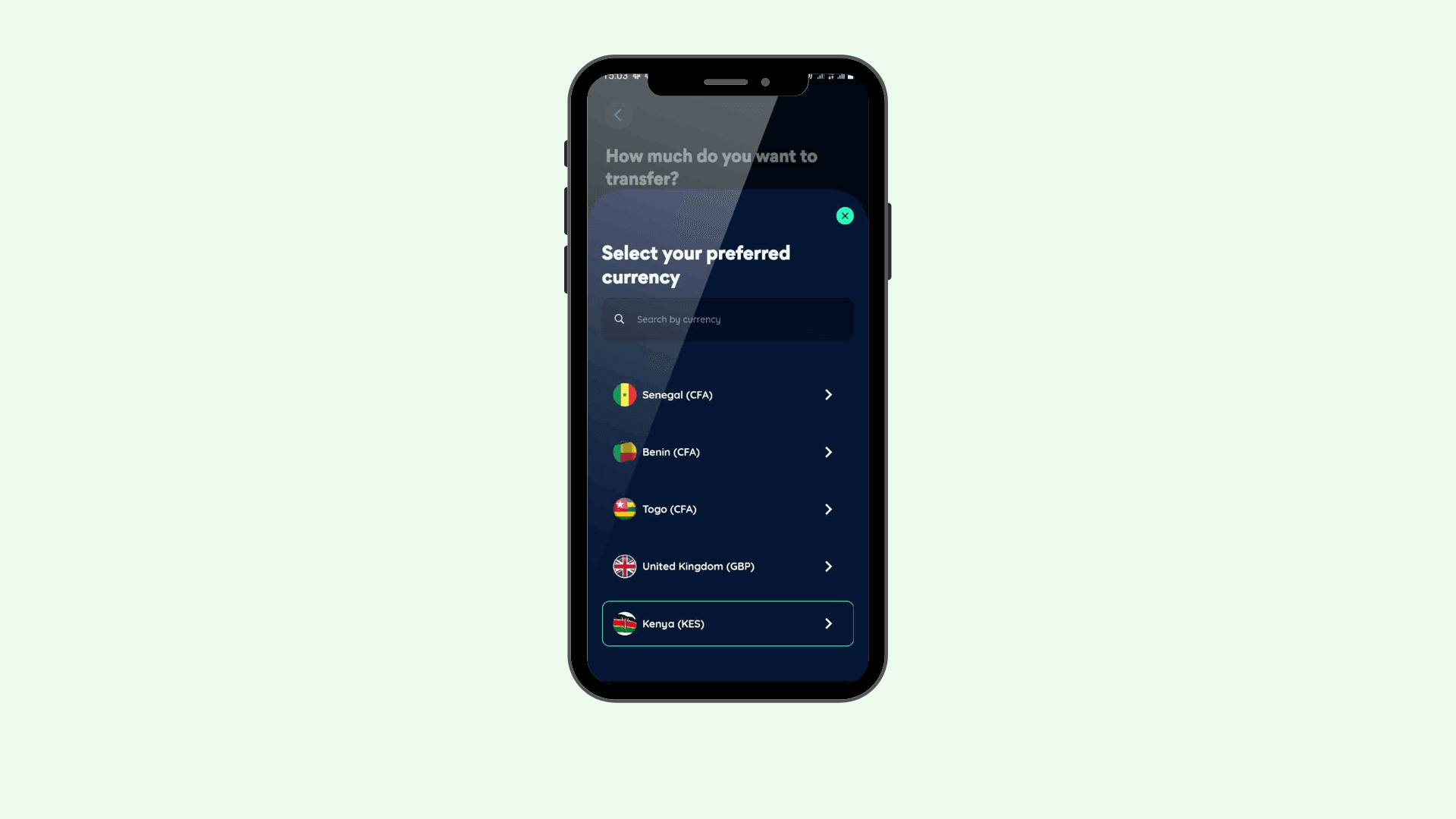
- Fill out the amount you’d like to transfer, then tap on “Continue”
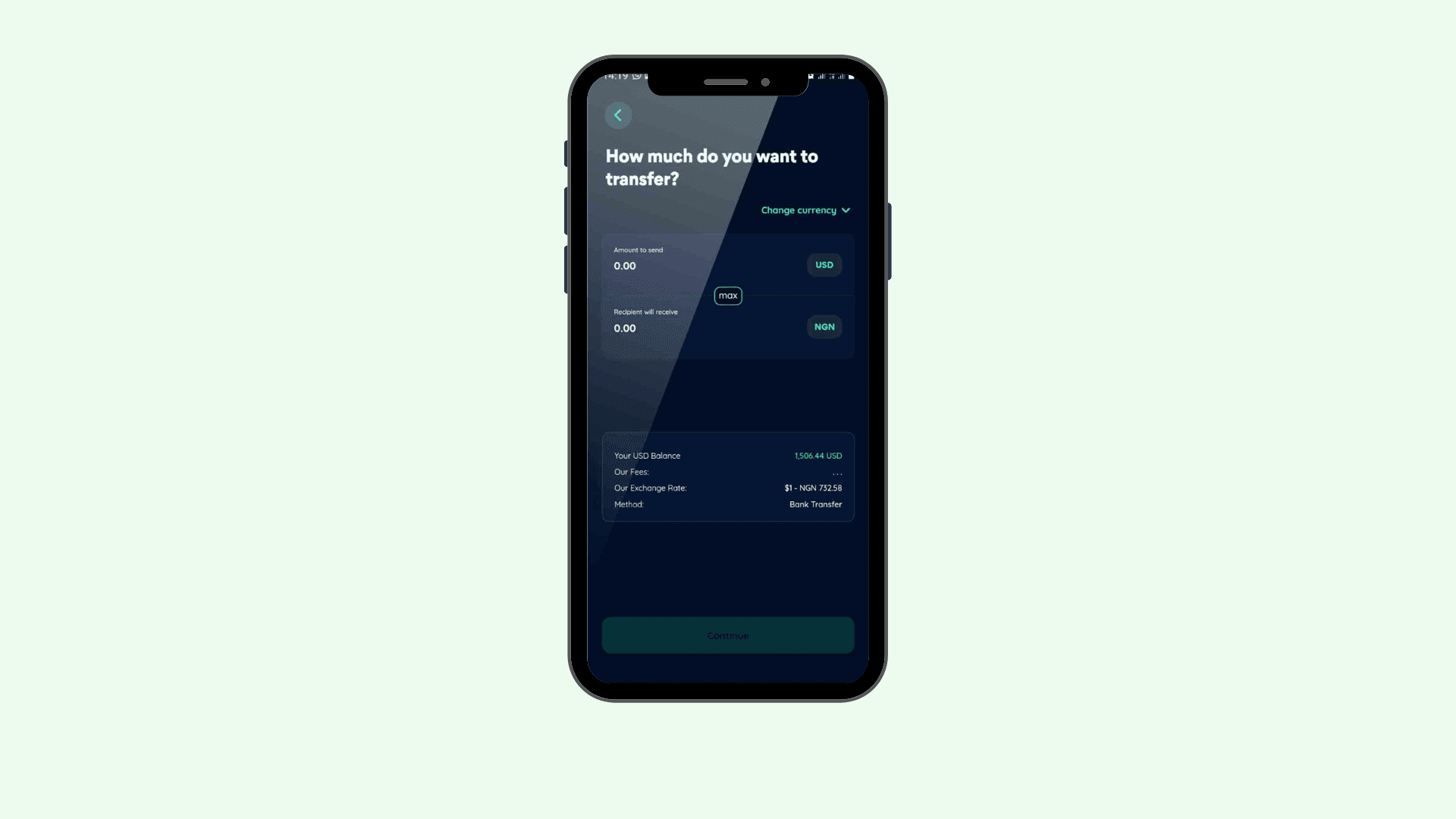
- Select the account or mobile money provider and fill out the details of the recipient you want to send money to. If this person would be someone you intend to send money often, then tap on “Save as beneficiary” to make make the person a beneficiary.
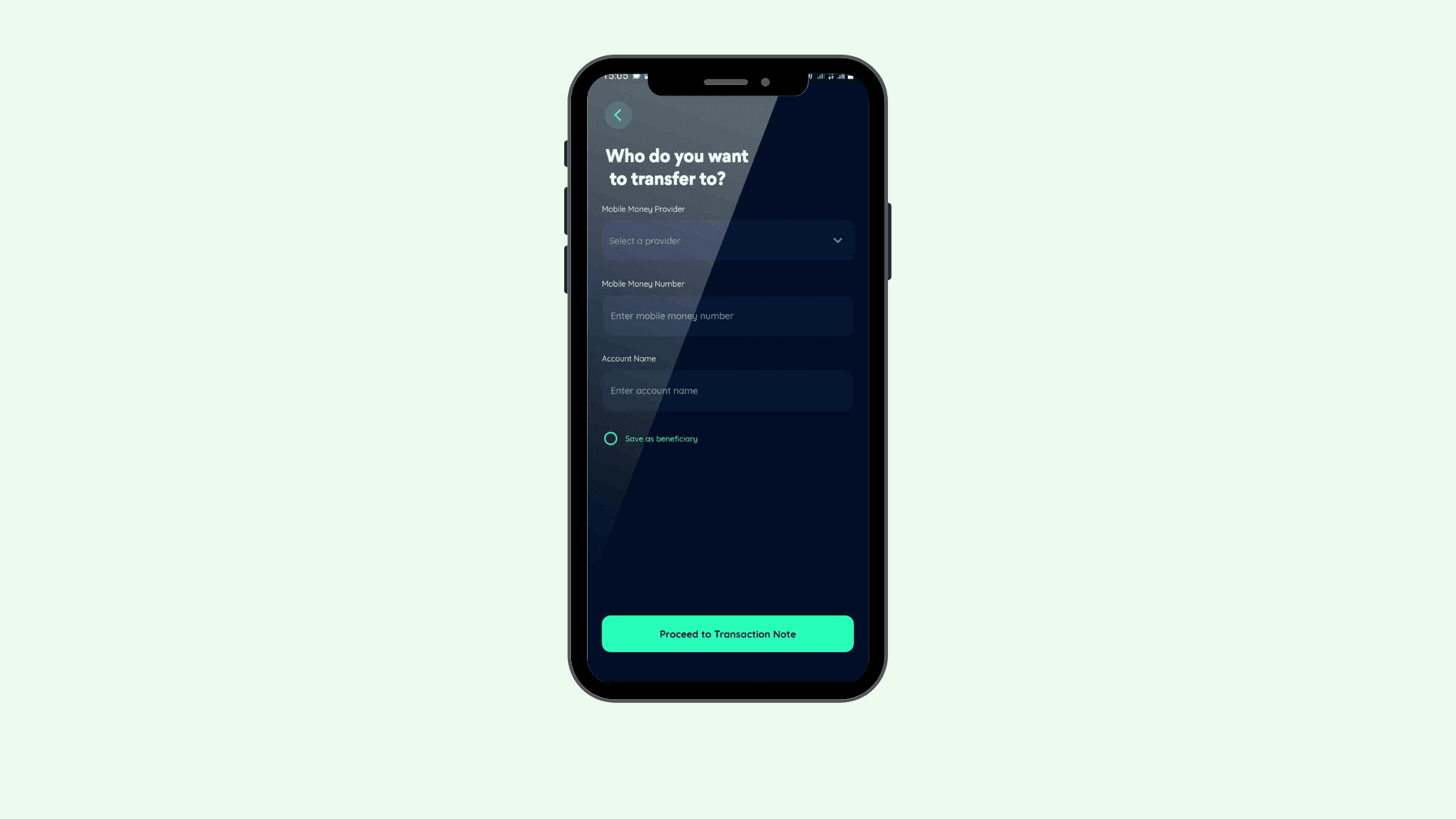
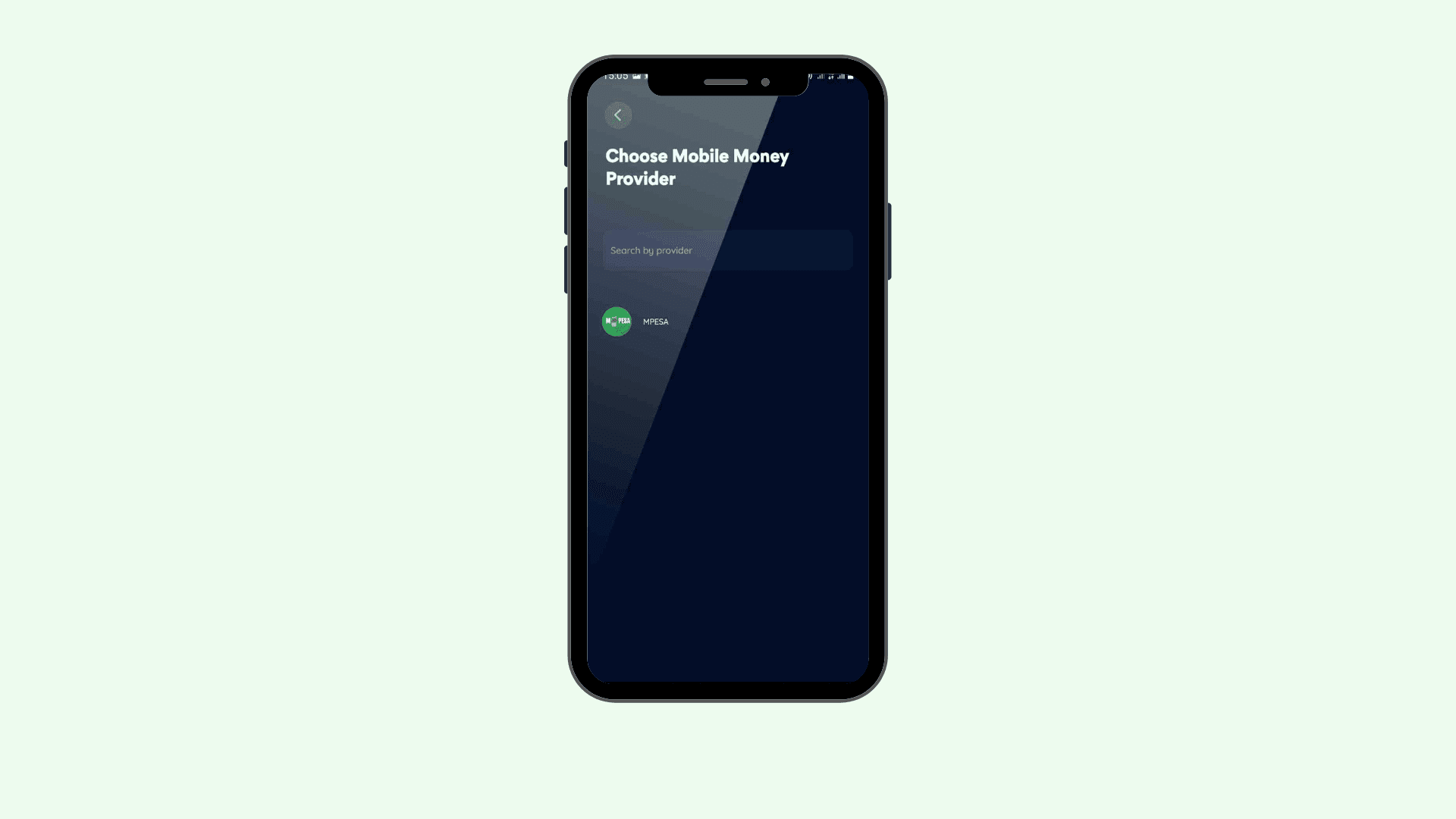
- Tap on “Proceed to Transaction Note” to add a note on the transaction
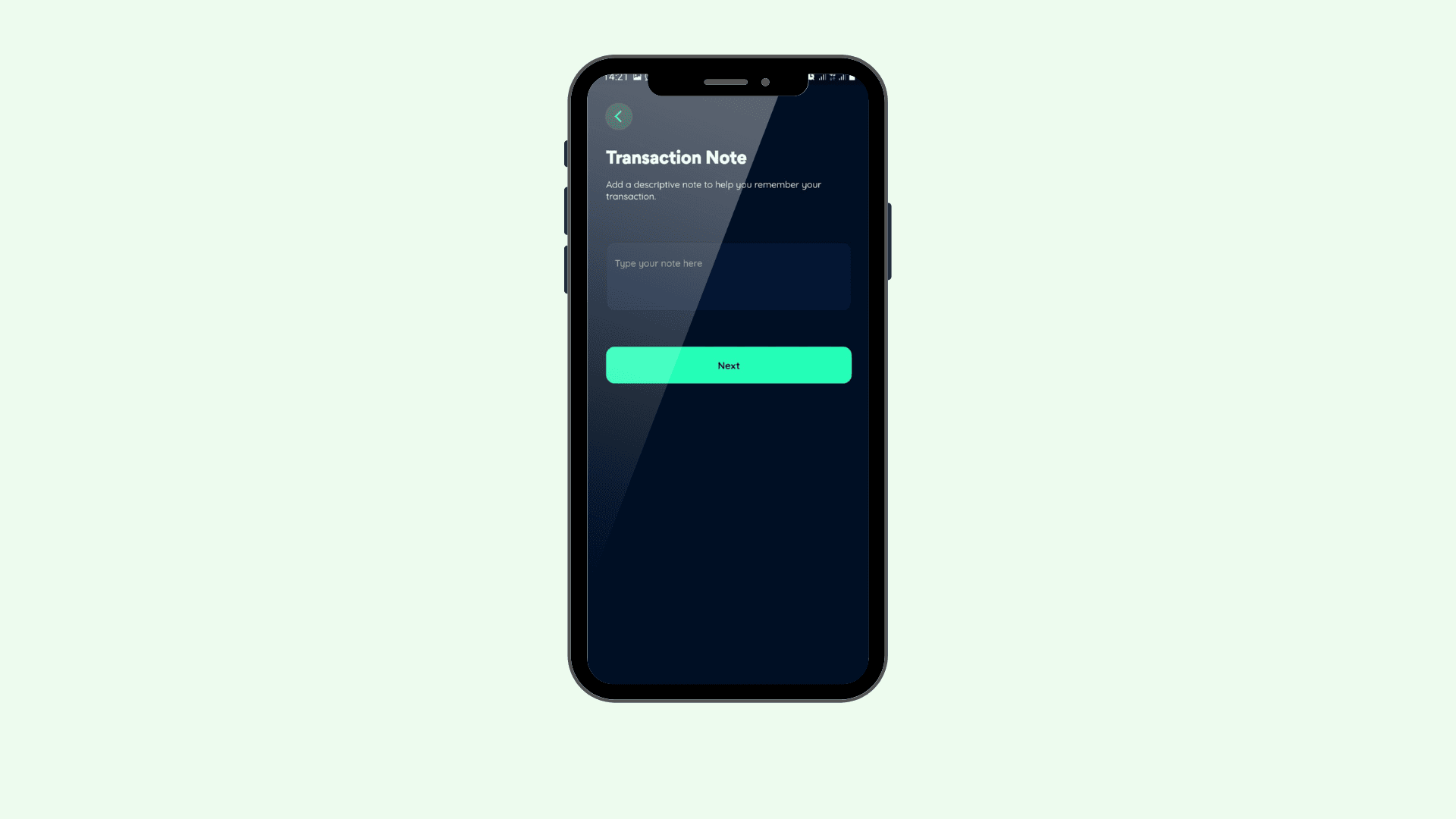
- Review the transaction summary and then tap on “Proceed” to initiate payment to the account or mobile money wallet.
And there you go, you just made a seamless cross-border transaction and the money was sent directly to the mobile money wallet of the recipient!
Ready to send money to someone’s mobile money wallet?
Mobile money has revolutionized the way people manage their finances, particularly in developing countries where access to traditional banking services is limited.
As the number of mobile money users continues to grow, it's clear that this innovative technology is playing a crucial role in promoting financial inclusion and creating new opportunities for millions of people around the world.
Bitnob empowers you to send money directly into the mobile money wallet of any recipient in Ghana, Kenya, Senegal, Togo, Ivory Coast, Rwanda, and Benin Republic. Would you use Bitnob to send money to someone’s mobile money wallet within Africa? Click here to get started.
